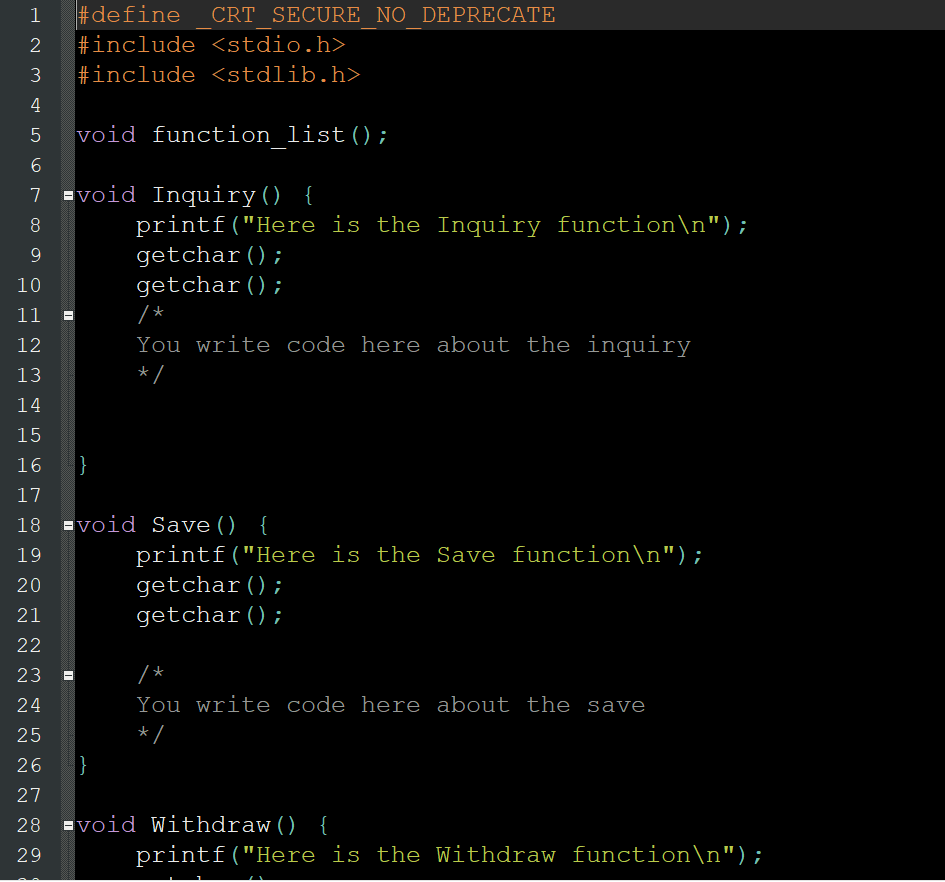A state machine is any object that behaves different based on its history and current inputs. Many embedded systems consist of a collection of state machines at various levels of the electronics or software. This article provides an introduction to state machines fundamentals plus practical advice for implementing them in C or C. Once a user has selected their drink the system should allow them to enter the amount of money they are inserting into the machine.The program should then calculate the amount of change to be returned and subtract one from the number of that drink in the machine.If the user selects a drink which has sold out an appropriate message should be displayed. C Program emulating a vending machine. So I have this project I have to submit soon, for a program made to these specs: 1. The user display shows a start-up message welcoming the customer and invites him/her to proceed by pressing a key on the keypad. On pressing a key a menu is displayed offering four choices of drinks and an option to cancel. Simple Vending Machine Program. In programming, the most basic form of input/output (I/O) is displaying some text to a user and allowing the user to enter some text back.
Drink name
Drink cost
Number of drinks in machine
The program should create an array of five structures. The elements should be initialized with the following data:
Drink Name Cost Number in Machine
Coke .75 20
A_and_W .75 20
Sprite .75 20
Shasta .80 20
MinuteMaid .80 20
Each time the program runs, it should enter a loop that does the following:
Display a list of drinks on the screen
Allow the user to either quit or pick a drink
If the user picks a drink, he or shill will then enter the amount of money to be inserted into the machine
The program should then display the amount of change that would be returned and update the number of drinks still in machine. If the user has not entered enough money, the program should display how much more should be entered to complete the sale.
If the user selects a drink that has been sold it, a message should be displayed
This loop should continue until the user says Quit. When the user quits, it should display the total amount of money earned by that machine (based on how many drinks were bought).
The program should not accept money amounts less than 0 or greater than $1.00
this is what i have so far....
struc Machine
{
string Drink_name;
int cost;
int Num_of_drinks;
};
struct Machine Drink[4];
drink[0]= {'coke', .75, 20};
drink[1]= {'A and W', .75, 20};
drink[2]={'sprite', .75, 20};
drink[3] ={'shasta', .80, 20};
drink[4]= {'minute maid', .80, 20};
QUESTION: i dont know if am initializing the variables correctly. so if someone could please provide some insight on this. thanks.

Dev C Vending Machine Programram
Below are the requirements basically.
(TEXT FILE)
**************************************
Name Cost Number
Cola $0.75 20
Lemon Lime $0.75 20
Root Beer $0.75 20
Grape Soda $0.80 20
Cream Soda $0.80 20
************************************
Write a program that simulates a soft drink machine. The program should use a struct that stores
the following data:
Drink Name
Drink Cost
Number of Drinks in Machine
The program should create an array of five elements of type struct. The elements should be
initialized with the values from the file “drinkMachine.txt”.
Each time the program runs, it should enter a loop that performs the following steps:
1. A list of drinks is displayed on the screen.
2. The user should be allowed to quit the program or pick a drink.
If the user selects a drink, she will next enter the amount of money that is to be inserted into the
drink machine.
The program should display the amount of change that would be returned and subtract one from
the number of that drink left in the machine. If the user selects a drink that has sold out, a
message should be displayed. The loop then repeats. When the user choses to quit the program it
should display to the screen the total amount of money the machine earned.
Input validation: When the user enters an amount of money, do not accept negative values, or
values greater than $1.00.
*****************************************